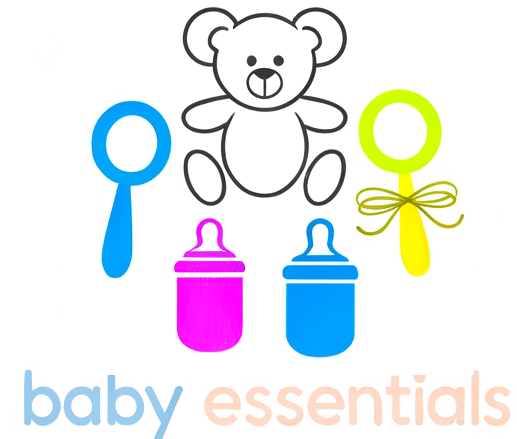Vaccinating your baby according to the baby immunisation schedule is one of the most important steps you can take to protect their health. As a new or expecting parent, you may have questions or concerns about what vaccines are, how they work, and what to expect at each stage. This guide, based on the latest recommendations from the NHS, CDC, WHO, and other trusted sources, will walk you through the baby immunisation schedule, explain the purpose of each vaccine, and offer practical reassurance for your family’s journey towards following the baby immunisation schedule.
Why Immunisations Matter
The baby immunisation schedule is essential for ensuring that your child is protected against serious diseases from an early age.
Following the baby immunisation schedule ensures that your baby’s immune system can effectively combat infections as they grow.
Understanding the baby immunisation schedule helps parents make informed decisions about their child’s health.
Immunisations, or vaccinations, are a safe and effective way to protect babies from serious diseases. Vaccines work by training your baby’s immune system to recognise and fight harmful bacteria and viruses, often before your child is ever exposed to them. This not only keeps your baby safe but also helps protect the wider community by reducing the spread of disease.
Adhering to the baby immunisation schedule protects not only your baby but also those around them.
How Vaccines Work
Vaccines contain tiny amounts of weakened or inactive parts of a particular organism (antigen) that triggers an immune response. This response produces antibodies to fight the disease if your child is exposed to the disease in the future, without causing the illness itself.
Why Vaccination Is Important for Babies
- Babies’ immune systems are still developing, making them more vulnerable to infections.
- Some diseases can cause severe complications, long-term health issues, or even be life-threatening for infants.
- Vaccination protects not just your child but also those who can’t be vaccinated, such as newborns or children with certain medical conditions.
Every parent should be aware of the baby immunisation schedule to ensure timely vaccinations.
Knowing the baby immunisation schedule allows for better planning of healthcare visits.
The Baby Immunisation Schedule by Age
Immunisation schedules can vary slightly by country, but the following is based on the latest NHS (UK) and CDC (US) recommendations, with notes on recent updates and international adaptations. Always check with your healthcare provider for your local schedule.
At Birth (Selective, Depending on Risk)
- Hepatitis B: Given to babies whose mothers have hepatitis B, or in some countries as a universal birth dose.
- BCG (Tuberculosis): Given to babies at higher risk of TB, such as those with family from high-incidence countries.
8 Weeks Old
- DTaP/IPV/Hib/HepB (Hexavalent vaccine): Protects against diphtheria, tetanus, pertussis (whooping cough), polio, Haemophilus influenzae type b, and hepatitis B.
- MenB: Protects against meningococcal group B infection.
- Rotavirus: Protects against rotavirus gastroenteritis (oral vaccine).
12 Weeks Old
- DTaP/IPV/Hib/HepB (2nd dose)
- MenB (2nd dose): As of July 2025 in the UK, this dose is given at 12 weeks instead of 16 weeks to provide earlier protection.
- Rotavirus (2nd dose)
16 Weeks Old
- DTaP/IPV/Hib/HepB (3rd dose)
- Pneumococcal (PCV13): As of July 2025 in the UK, the first dose of PCV13 is now given at 16 weeks instead of 12 weeks.
1 Year Old (On or After the First Birthday)
- MMR (Measles, Mumps, Rubella): Protects against three serious viral infections.
- Pneumococcal (PCV13) booster
- MenB booster
- Hib/MenC (Hib and Meningococcal C): Note: For children born on or after July 1, 2024, the Hib/MenC vaccine is no longer routinely offered at 1 year in the UK.
18 Months (UK, from January 2026 for children born on or after July 1, 2024)
- DTaP/IPV/Hib/HepB (4th dose): Additional protection as immunity can wane.
- MMR (2nd dose): This second dose is now given at 18 months instead of 3 years 4 months in the UK for children born on or after July 1, 2024.
3 Years 4 Months (or Soon After)
- dTaP/IPV: Booster for diphtheria, tetanus, pertussis, and polio.
- MMR (2nd dose): For children born before July 1, 2024, or in countries where this remains the schedule.
Annual Influenza (Flu) Vaccine
- Given each year from 6 months of age in many countries, especially for those at higher risk.
- Usually given as a nasal spray (LAIV) for children over 2 years, or as an injection for younger children or those with certain health conditions.
Other Vaccines (Depending on Country or Risk Factors)
- COVID-19: Recommended for all infants 6 months and older in many countries.
- RSV (Respiratory Syncytial Virus): Recommended for infants born in certain months or with specific risk factors.
- Hepatitis A, Chickenpox (Varicella), Dengue, and others: Included in some national schedules or for specific risk groups.
What Each Vaccine Protects Against
- DTaP/IPV/Hib/HepB: Diphtheria, tetanus, pertussis (whooping cough), polio, Haemophilus influenzae type b, hepatitis B.
- MenB: Meningococcal group B disease (serious bacterial infection causing meningitis and sepsis).
- PCV13: Pneumococcal disease (causes meningitis, pneumonia, and ear infections).
- Rotavirus: Severe diarrhea and vomiting in babies and young children.
- MMR: Measles, mumps, and rubella (can cause serious complications such as brain inflammation, deafness, and birth defects).
- Hib/MenC: Haemophilus influenzae type b and meningococcal group C (causes meningitis and blood infections).
- Influenza: Severe flu and its complications.
- COVID-19: Severe COVID-19 infection and complications.
- RSV: Severe respiratory infections in infants.
What to Expect During the Immunisation Appointment
It’s natural to feel anxious about your baby’s vaccinations. Knowing what to expect can help you and your child feel more comfortable.
Before the Appointment
- Bring your child’s health record (e.g., the “red book” in the UK).
- Dress your baby in loose, easy-to-remove clothing.
- Let the clinic know if someone else is bringing your child.
- Try to stay calm, your baby will pick up on your cues.
During the Appointment
- Your baby will usually sit on your lap for injections (in the thigh for under 12 months, arm for older children).
- The nurse or doctor will explain each vaccine and answer any questions.
- Some vaccines are given as drops in the mouth (e.g., rotavirus), others as injections.
- Comfort your baby with cuddles, soothing words, or a favourite toy.
- For newborns, techniques like swaddling, shushing, or breastfeeding during or after the shot can help soothe them.
After the Appointment
- Your baby may cry, be fussy, or have a mild fever or swelling at the injection site.
- Most side effects are mild and last only a day or two.
- Give extra cuddles, offer feeds as usual, and keep your baby comfortable.
- Paracetamol (acetaminophen) may be recommended after some vaccines (e.g., MenB) to reduce fever. Follow your doctor’s advice.
- Watch for rare but serious reactions, such as difficulty breathing or swelling. Seek medical help immediately if these occur.
Possible Side Effects and Comfort Tips
Common Side Effects
- Redness, swelling, or soreness at the injection site
- Mild fever
- Fussiness or irritability
- Loss of appetite
- Tiredness
- Occasional mild rash (e.g., after MMR)
How to Comfort Your Baby
- Hold and cuddle your baby after the shot
- Breastfeed or offer a bottle for comfort
- Use distraction (toys, singing, gentle rocking)
- Apply a cool pack to the injection site if sore
- Keep your baby hydrated and dressed in light clothing
- Give paracetamol or ibuprofen if advised by your healthcare provider
- For older babies, praise and a fun activity after the visit can help make the experience more positive
Vaccine Safety: Reassurance and Common Myths
Vaccines are thoroughly tested for safety and effectiveness. Serious side effects are extremely rare, and the benefits far outweigh the risks. Here’s what parents should know:
- Myth: Vaccines overload the immune system.
Fact: Babies’ immune systems handle far more germs daily than those in vaccines. Vaccines simply help them build targeted protection. - Myth: Vaccines cause the diseases they protect against.
Fact: Vaccines use weakened or inactive parts of the virus or bacteria and cannot cause the disease. - Myth: Vaccines cause autism.
Fact: Extensive research shows no link between vaccines and autism. - Myth: It’s better to get diseases “naturally.”
Fact: Natural infection can lead to severe complications, long-term health problems, or death. Vaccines provide safe, controlled protection.
Addressing Concerns
- Talk openly with your healthcare provider about any worries.
- Ask questions and seek information from reputable sources.
- Remember: most side effects are mild and temporary. Serious reactions are monitored and managed by trained professionals.
What If a Dose Is Missed?
Life can be unpredictable, and sometimes a vaccine appointment is missed. Don’t panic, your child can catch up.
- Contact your healthcare provider as soon as possible to reschedule.
- There’s no need to restart the entire schedule, your child will just pick up where they left off.
- Keep a record of your child’s vaccinations to stay on track.
- In some cases, multiple vaccines can be given at the same visit to catch up safely.
International Variations and Adaptations
While the core vaccines are similar worldwide, the exact schedule may vary by country. Some countries offer additional vaccines (such as hepatitis A or chickenpox), while others may have different timing for boosters. Always check with your local health authority or doctor for the most accurate schedule for your child.
Final Thoughts: Supporting Your Baby’s Health
Immunising your baby is a powerful way to protect them from serious diseases and give them the best start in life. It’s normal to have questions and concerns what matters most is making informed decisions with the support of your healthcare team. Remember, each vaccine is a step toward a healthier future for your child and your community.
If you ever feel uncertain, reach out to your doctor, nurse, or health visitor. They’re there to support you, answer your questions, and help you keep your baby happy, healthy, and safe.
Sources
- NHS: NHS Vaccinations and When to Have Them
- GOV.UK: Routine Childhood Immunisations
- CDC: 2025 CDC Child and Adolescent Immunization Schedule
- WHO: Vaccines and Immunization
- Immunisations UK: Changes to UK Childhood Vaccination Programme
- Meningitis Research Foundation: Pneumococcal Vaccines
- KidsHealth: DTaP Vaccine
- London School of Hygiene & Tropical Medicine: MMR Remains Best Protection Against Measles
- ECDC: Rotavirus Vaccination in Infancy
- CDC: Possible Side Effects from Vaccines
- NHS: Vaccination Tips for Parents
- KidsHealth: How Can I Comfort My Baby During Shots?
- What to Expect: How to Manage Fever and Other Vaccine Side Effects
- Mayo Clinic: Childhood Vaccines: Tough Questions, Straight Answers
- Childhealthy: Missed Vaccines: What to Do When Your Child’s Immunisation Schedule Gets Delayed
- AAP: Talking with Vaccine Hesitant Parents
- Guideline Central: CDC Childhood and Adolescent Vaccination Schedule (2025)

